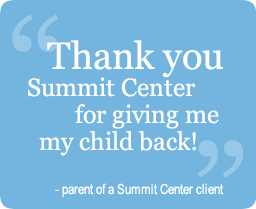Transitions are difficult for most people, and this is often particularly true for gifted children. There is a saying that “uncertainty breeds anxiety.” This definitely applies to the transition back to school. There are so many swirling questions – who will my teacher be? Will he/she be nice? Will I have any friends in my class? Will I get teased? Will I be bored? And the list goes on…
We must remember that some level of nervousness and worry is normal in new situations. However, there are several things that you can do, and help your child do, to minimize the impact of the worry. First, remember that our thinking ignites our worry. That means that if we are thinking worrisome things, the “fight or flight” part of our brain is activated and we will feel nervous in our body. We need to help our kids identify the content of their thoughts and then change them into something a little more adaptive and hopeful and less catastrophic. For example, your child might be thinking, “I afraid my teacher won’t get me and I will be bored again.” You can help him change his thinking to something like, “I will do my best to help my teacher get to know me” or “I am looking forward to a more positive year.”
There are also environmental strategies that can be helpful in reducing yours and your child’s back to school worry. Set up a meeting with your child’s teacher with the primary goal of telling him or her about your child’s strengths and weaknesses. Let them know what worked for your child last year, and what did not work. Building a collaborative relationship with your child’s teacher is important.
Next, develop your daily and nightly routines and rituals as soon as possible. This includes regular bedtime and wake-up times, breakfast, drop-off, and pick-up schedules. The key is that a schedule will allow for stability, consistency and predictability. All of these things reduce anxiety.
The last very important thing to do is – focus on the present. Try to take one day at a time and deal with the challenges if, and when, they come. We hope your child gets off to a good start and has a good year!
Dr. Dan Peters, PhD., Co-Founder and Clinical Director
Have you been thinking about having your child or teen tested for learning or processing issues? Find out how to help your child maximize their strengths and support their challenge areas, starting with an IQ and achievement assessment at any of our offices. Help ensure that your child starts off the school year right. Call or email info@summitcenter.com now to schedule an appointment.


